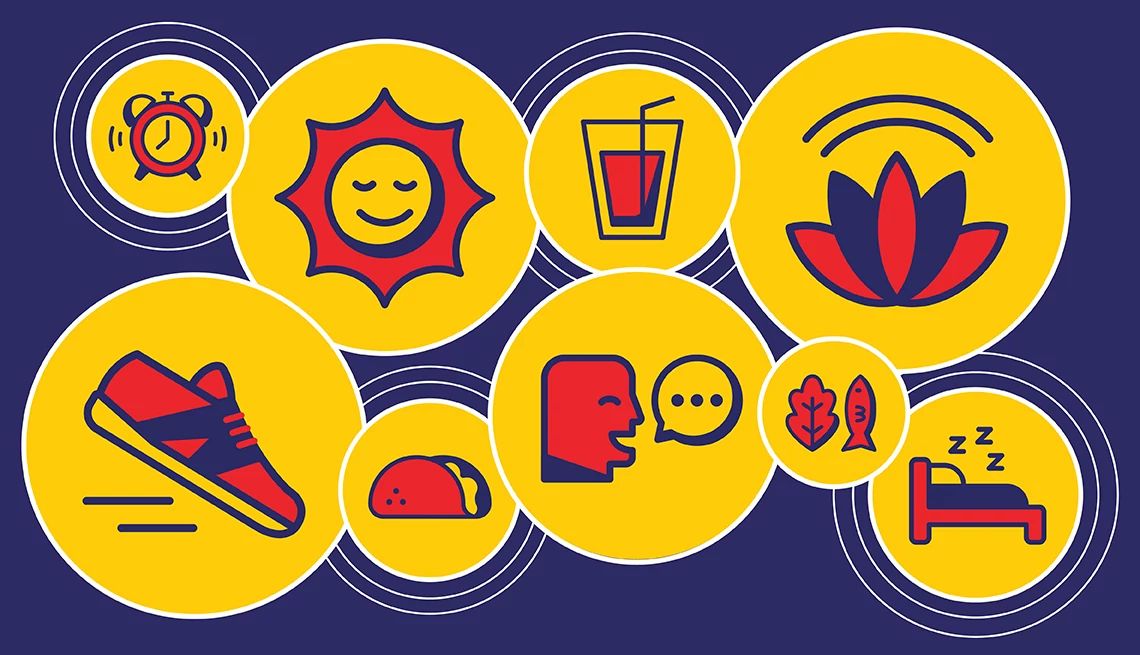
9 Simple Habits to Do Every Day to Slow Aging
- Select a language for the TTS:
- UK English Female
- UK English Male
- US English Female
- US English Male
- Australian Female
- Australian Male
- Language selected: (auto detect) - EN
Play all audios:
Elias Stein Facebook Twitter LinkedIn
Every individual — indeed, every individual body part — ages at a distinct rate. But there are things you can do that may slow aging or, at the very least, foster healthy aging. Here's what
a day without aging might look like.
6–8 a.m. Wake up. Waking up between 6 and 8 a.m. is generally in sync with your body’s circadian rhythm, which is the internal clock that regulates your sleep and wakefulness. The American
Academy of Sleep Medicine recommends that you wake up no less than seven (and no more than nine) hours after you went to bed.
7–9 a.m. Morning walk. Be sure to get some sunlight in the morning, which helps your body produce the vitamin D that may slow the aging process. Make a habit of walking the dog or doing
light chores outside first thing in the morning, before the demands of the day trap you in your house, car or office.
9–10 a.m. Breakfast. Start with a protein smoothie with mixed fruit. A high-protein breakfast is critical for maintaining muscle mass as we age, according to numerous studies. Research shows
that getting 25 to 30 grams of protein in the morning is effective in preventing age-related muscle loss, also known as sarcopenia.
Noon. Meditation. Any calming activity, such as yoga or prayer, can help reduce the risk of cognitive decline by activating the prefrontal cortex, an area of the brain that is diminished in
those with cognition difficulties. A study in the Journal of Alzheimer’s Disease found that just 12 minutes of meditation daily could make a difference.
1 p.m. Lunch. Have a mixed salad with salmon. A Mediterranean-style diet that is abundant in fruits and vegetables and omega-3-rich fish such as salmon can reduce inflammation, a culprit in
biological aging, according to a review of studies in the journal Nutrients. Eating a wide array of plant foods boosts the microbiome, the master controller of gut inflammation.